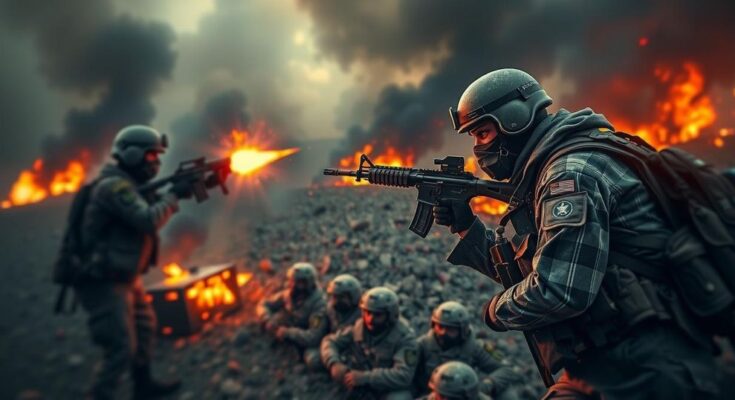Recent hostilities between Israel and Hezbollah are testing a fragile ceasefire agreement established last week, following a series of mutual accusations of violations. Israeli air strikes resulted in casualties in southern Lebanon, while Hezbollah claimed its actions were defensive. Both sides are on high alert as the international community seeks to stabilize the situation.
Recent exchanges of fire between Israel and Hezbollah are straining the fragile ceasefire established last week. Following a mortar barrage launched by Hezbollah at an Israeli military outpost, Israel executed its most extensive air strikes since the truce, resulting in nine fatalities across two villages in southern Lebanon. Both parties have accused one another of violating the ceasefire, which was mediated by the United States and France.
Under the terms of the ceasefire, Israel is prohibited from conducting offensive military operations within Lebanon, while Lebanon is tasked with preventing armed groups such as Hezbollah from attacking Israeli targets. The Israeli military reported no casualties from the mortar attack; however, Prime Minister Benjamin Netanyahu promised a strong retaliatory response. Israeli Defense Minister Israel Katz warned of unprecedented consequences for Lebanon should the ceasefire disintegrate.
Hezbollah defended its mortar attack as a warning against continuous Israeli violations. Reports indicated that Israel had conducted artillery shelling as well as aerial bombardments prior to Hezbollah’s response. The group characterized its actions as defensive, citing ineffective attempts to halt Israeli aggressions through diplomatic channels. Kassem Kassir, a Lebanese political commentator, emphasized the necessity of activating the international monitoring committee to reinforce the ceasefire.
The context of the ceasefire involves a history of conflict between Israel and Hezbollah, particularly in the wake of recent hostilities. The ceasefire brokered by U.S. and French diplomats aimed to curtail military operations and restore stability, but ongoing mutual accusations of violations signify the volatility of the situation. The international committee’s role is pivotal in verifying claims and facilitating communications to uphold the truce, illustrating the delicate balance of power in the region.
The current conflict between Israel and Hezbollah illustrates significant weaknesses in the recently established ceasefire. With both sides accusing one another of violations and Hezbollah launching retaliatory strikes while vowing continued vigilance, the stability of the ceasefire remains precarious. The efficacy of the international monitoring committee will be crucial in addressing these violations and promoting adherence to the ceasefire conditions moving forward.
Original Source: www.bbc.co.uk




